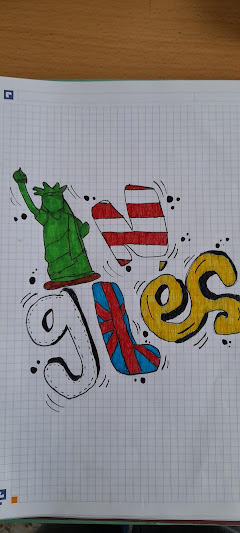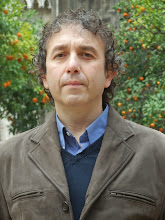SUBJECT + HAD + VERB-pp
+ (Complements)
STATEMENT I had finished my homework
She had gone home soon
They
had studied the whole lessonShe had gone home soon
NEGATION I had not finished my homework
She
had not gone home soon
They
had not studied the whole lesson
INTERROGATION Had I finished my homework?
Had
she gone home soon?Had they studied the whole lesson?
TIME EXPRESSIONS:
·
FOR
/ DURING / SINCE:
- FOR: A period of time
He had worked as a miner for six years
He had worked as a miner for six years
- DURING: A period of time defined by itself:
He had worked as a miner during the autumn
He had worked as a miner during the autumn
- SINCE: A period of time extending into the present:
He had worked as a miner since he left school
He had worked as a miner since he left school
·
EVER
/ NEVER
- EVER: To express at any time in the past until now:
Interrogative (ALGUNA VEZ): Had you ever been to London
Negative (NUNCA): I
had not ever drunk gin
- NEVER: To express at no time (the opposite of ‘ever’):
Affirmative (NUNCA): I had never been to London
· JUST:
To express a recently completed action:
- JUST (ACABAR DE
·
ALREADY
/ YET
- ALREADY:
Affirmative (YA): They had already seen
the film
- YET:
Interrogative (YA): Had you finished yet?
Negative (AÚN / TODAVÍA): He had not finished his meal yet
·
BEFORE
/ AFTER:
- BEFORE (ANTES): I
had studied before I went out
- AFTER (DESPUÉS): I went out after I had
studied
·
WHEN
/ BY THE TIME / AS SOON AS:
- WHEN (CUANDO): I had
already eaten when he arrived
- BY THE TIME (PARA CUANDO): By the time I was seven, I had
written two novels
- AS SOON AS (TAN PRONTO COMO): As
soon as I had finished my dinner, the telephone rang.
·
UNTIL
(HASTA QUE): Until I was in London
USES:
·
To
talk about an action or activity that happened before another activity or time
in the past: I had never eaten lobster until I was in Hawaii
PAST SIMPLE PERFECT
versus PAST SIMPLE
The most recent activity is in the
Past Simple while the previous one is in the Past Perfect Simple: This morning,
I washed my hair after I had eaten breakfast.


